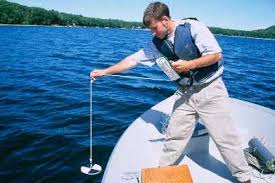
Nature of work
A water quality scientist is responsible for safeguarding all aspects of water quality through scientific analysis and the setting of targets and standards in response to specific legislations. He/ she compares test results with these standards, investigates shortfalls and takes action to solve problems. Depending on the employer, he/ she may also be involved in providing solutions to water quality problems and water quality regulations.He/ she usually specializes in one of three areas:
· Drinking water.
· Surface water (rivers, lakes, estuaries).
· Groundwater.
More senior roles may involve significant liaison with businesses, public and other water industry professionals.
Tasks differ according to the specialist area, particularly with regard to the degree of contact with the public, businesses and regulatory authorities, but all roles are likely to involve some or all of the following:
· Taking water samples (although routine sampling may be carried out by technicians).
· Carrying out laboratory samples tests for chemical or microbiological parameters and, in the case of drinking water, he/ she assesses the quality of taste and clarity.
· Analyzing statistical data of water quality samples.
Environment of work
Working hours are from 8.30 am to 3.30 pm, but typically include regular extra hours. Most organizations provide 24-hour emergency cover so employees often work extra time. Overtime payments and a standby allowance may be available. Extra hours might be expected in response to a serious incident. Working outdoors in all weathers is the norm for field-based staff but not for regulatory or laboratory-based scientists. Self-employment/freelance work is not generally possible until a person has gained sufficient experience and becomes expertise to make consultancy. Part-time work and career breaks are possible. Women are now well represented in this area of work.Dress code depends on whether an employee works outdoors or in a laboratory. The day-to-day schedule may be unpredictable and stressful due to the need to be responsive to incidents. Absence from home overnight is uncommon as overseas work or travel, except within consultancies. Travel within a working day is frequent. Part of each day may be spent visiting sites of concern. Covering a large region may involve considerable daily travel.
Professional life
Career progression is not usually rapid. Post holders must first build up their knowledge and experience, and it may also take time to gain relevant professional qualifications. Beyond that, progression is partly depends on a person’s motivation. Some water quality scientists are happy to remain in their role, developing their own expertise within a specialized area.The most obvious career for ambitious staff within water companies is to become water operations managers, with responsibility for managing a range of facilities within the water industry and coordinating and directing all activities relating to water operations. However, there is a competition for these posts, particularly among graduates recruited onto graduate training schemes. Other management roles include managing and supervising samples, treatments and laboratory facilities and staff.
Experienced water quality scientists who are recognized as expert in his/ her field may be able to move into consultancy, providing services to water organizations nationally and internationally. This is only likely with significant experience of research, publishing and/or management.
Range of typical starting salaries: 32000-35000 SYP.
Getting the job
Although this area of work is open to all graduates and especially those with a science degree, a degree in the following subjects may increase his/ her chances:· Chemistry.
· Environmental science.
· Biology.
· Biochemistry.
· Geology.
· Microbiology.
Although a postgraduate qualification is not generally required, it may offer some advantage to those with less relevant first degrees. Postgraduate courses with work placements or with strong ties to the industry would be preferred.
Skills
Candidates need to show evidence of the following:· Good laboratory work skills.
· Evidence of a sound analytical approach to problems.
· Organizational skills.
· Attention to details.
· Good communication skills.
· Awareness of the water industry, particularly water companies.
Sources and references
If you need any further information on what is included in this file, you can visit the following websites:- www.wqa.org, Water Quality Association
- www.fwqa-dc.org, Federal Water Quality Association
Summary
A water quality scientist carries out tests and analysis water obtained from three main sources: groundwater, surface water (lakes, rivers, ponds, etc.), and drinking water.Daily work activities include collecting and testing water samples using approved biological, chemical and other scientific testing procedures, providing solutions on improving and maintaining water quality, inspecting and reporting on water pollution issues, and providing expert advice on the prevention of pollution.
